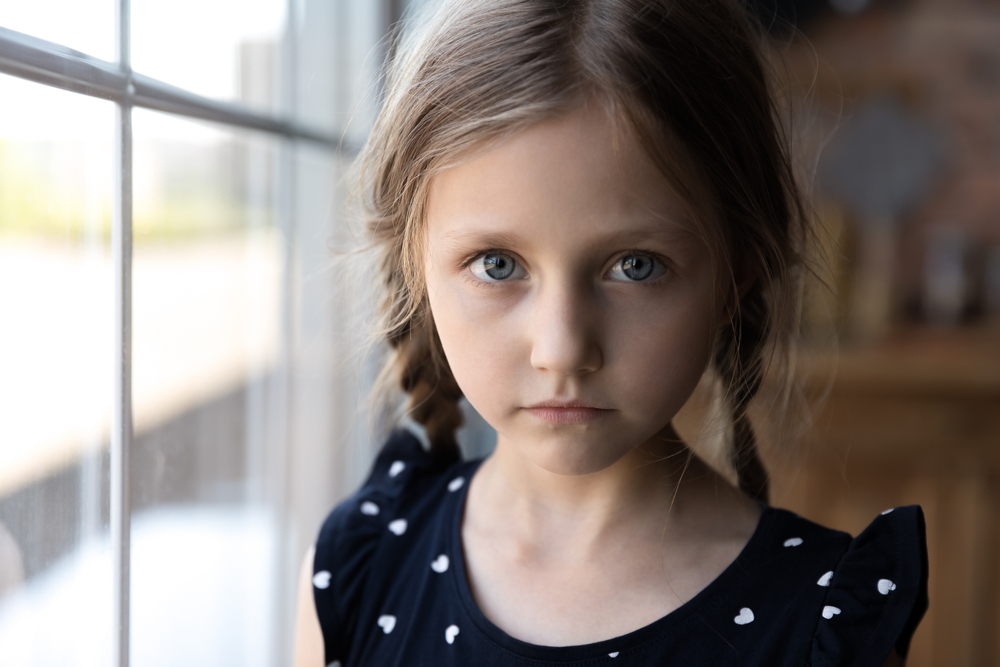It’s important to be upfront: this stuff is heavy. If you had a rough childhood, it’s not your fault, but understanding how it shaped you can be key for healing those old wounds. This isn’t about blaming anyone, it’s about why you might struggle with stuff that seems easy for others. Recognizing the reasons is the first step towards choosing new responses as an adult, so you can finally feel at ease in the world.
1. Your brain’s on high alert, even when there’s no real threat.

If you grew up feeling unsafe, your nervous system got wired to be constantly scanning for danger. So now, any little thing can trigger a major stress response, even when logically you know it’s no big deal. It’s exhausting, and makes it hard to chill out.
2. Trust doesn’t come easy.

If the people who were supposed to protect you didn’t, it messes with your ability to trust in general, Verywell Mind explains. You might second-guess people’s intentions, withdraw from close relationships, or expect to be disappointed. This makes having healthy connections tough, even if you desperately want them!
3. You might be a people-pleaser (and totally burned out).

As a kid, if keeping adults happy was key to your survival, you got REALLY good at reading moods. Problem is, you lose your own sense of self in the process. Always putting others first leads to feeling resentful, which is a recipe for crappy relationships…the opposite of what you intended.
4. Or, you might have walls built sky-high.

The flip side is becoming super guarded. If closeness always led to getting hurt in the past, pushing people away feels safer. But that deep down loneliness sucks, and makes true intimacy nearly impossible. It’s a self-protection thing, even if you hate that it’s how you operate.
5. You’re weirdly drawn to chaos, even though you crave stability.

Unhealthy relationships can feel weirdly familiar, even if they’re bad for you. Your subconscious is looking for what it knows, not what’s actually good for you. This makes breaking unhealthy patterns super frustrating, even when you recognize they’re harmful.
6. Intense emotions can feel terrifying.

If expressing anger, sadness, etc., as a kid got you in trouble, you may have learned to shove those feelings down. Trouble is, they don’t disappear. They pop out in unexpected ways: overreacting to minor stuff, or unexplained physical ailments (emotions gotta go somewhere!).
7. You either feel “too sensitive” or “too cold.”

Some folks become incredibly empathetic, overly attuned to others’ needs to avoid conflict. Others swing the opposite way: numb out emotionally to avoid ever being vulnerable again. Neither feels good! It’s that old survival mechanism, but dialed up too high, making balanced relationships difficult.
8. Achievement is how you prove your worth.

If love felt conditional as a kid, you may strive to be “perfect” to feel lovable NOW. But those achievements never quite fill that inner void. This leads to burnout, relationships suffering as you prioritize work, and a nagging feeling that you’re never good enough, no matter what you do.
9. You get imposter syndrome even when you’re clearly talented.

Deep down, you might fear that any success is a fluke, and you’ll eventually be “found out” as a fraud. This is common for kids who were either ignored or constantly criticized. It makes it hard to accept praise, celebrate wins, and step into opportunities even when you fully deserve them.
10. Your sense of self can feel fragile.

If your opinions, needs, etc., were dismissed as a kid, you might not fully trust your internal compass. Decisions feel agonizing, you look to others to tell you who you are, or change like a chameleon to fit in with whoever you’re around. Building a solid sense of self takes conscious effort, but it’s incredibly rewarding.
11. You avoid conflict to a crippling degree.

Any disagreement feels like a potential catastrophe, echoing that childhood unease. You may people-please to an extreme, saying “yes” when you mean “no”, just to keep the peace. Trouble is, this erodes your boundaries and creates relationships where you feel unseen and taken advantage of.
12. You self-sabotage and can’t stop yourself.

Subconsciously, you might believe you don’t deserve happiness. So, just when things are going well, you do something to blow it up. This can be through arguments, addiction, whatever. It’s your brain, misguidedly, trying to keep you in that familiar zone of pain, rather than the unknown territory of true contentment.
13. You struggle to ask for help, even when you’re desperate.

If you learned as a kid that relying on others leads to disappointment, you may hate feeling like a burden. This makes tough times even harder! Recognizing this pattern is key to gradually building trust in safe people, so you don’t have to carry everything alone.
14. You’re guilty of black & white thinking: things are “all good” or “all bad.”

Childhood trauma makes it difficult to see the shades of gray. Relationships, jobs, etc., swing from idealized to worthless with no in-between. This leads to impulsive decisions, and makes consistency hard. Learning to tolerate the messy middle ground is essential for stable, fulfilling situations of any kind.
15. You’re either clingy or fiercely independent to an extreme.

Inconsistent care as a kid makes secure attachment difficult, Simply Psychology explains. You might crave closeness, then get overwhelmed and withdraw. Or, the opposite: refusing intimacy altogether for fear of abandonment. Neither feels great long-term, and both create a cycle of messed-up relationships.
16. You pick fights unconsciously.

If chaos was your “normal”, peace can feel unsettling. You may instigate arguments over minor stuff to recreate that familiar intensity. This obviously tanks relationships, but the predictability of the drama feels weirdly safer than the vulnerability of things going well for too long.
17. Physical illness that seems to have no medical cause

The mind-body connection is REAL. Childhood trauma can manifest as chronic pain, digestive issues, and a host of other ailments without an easily diagnosable reason. Stress does crazy things! This doesn’t mean it’s “all in your head”, but healing emotionally is often key to physical health improving too.
18. It’s okay to need help untangling this mess

Therapy with a trauma-informed practitioner isn’t about being “crazy”. It’s about getting the right tools to understand your own reactions, and finally break free from patterns instilled in you long before you had a choice. You deserve a life where the past doesn’t have such a tight grip on your present!
Enjoy this piece? Give it a like and follow PsychLove on MSN for more!





